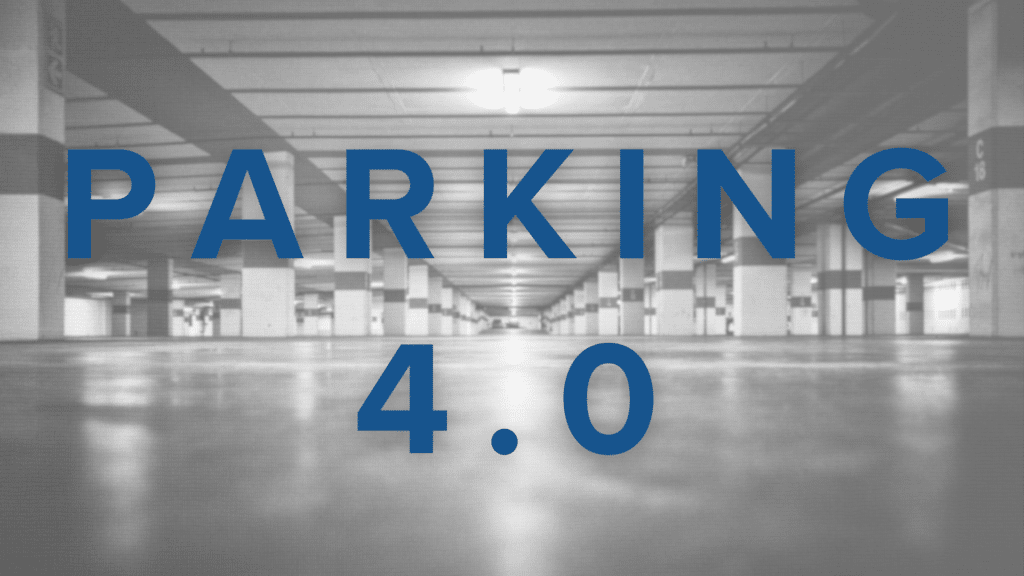Parking 4.0 Navigating the Future: Innovations and Trends Shaping the Parking Industry

The parking industry, once seen as a static and infrastructure-heavy sector, is undergoing a transformation driven by technological advancements and changing urban landscapes. As we look to the future, it’s clear that this industry will continue to evolve, integrating smarter, more efficient, and user-friendly solutions.
Technological Integration and Automation
One of the most significant changes in the parking industry is the integration of advanced technologies like gateless parking, automated parking systems, parking guidance systems and more.
Automated parking systems, which use robotics and software to park and retrieve vehicles, are becoming more prevalent. These systems not only maximize space utilization, reducing the need for expansive parking lots but also offer convenience and time savings for users.

Furthermore, the rise of Internet of Things (IoT) technology is enabling more efficient parking management. Sensors and connected devices provide real-time data on parking availability, reducing the time drivers spend searching for spaces. This technology also aids in dynamic pricing models, where parking fees can be adjusted based on demand, time of day, or special events.
Electric Vehicles and Charging Infrastructure
The surge in electric vehicle (EV) ownership is influencing the parking industry as well. Future parking facilities will need to accommodate a growing number of EV charging stations. This shift not only requires physical changes in infrastructure but also the adoption of new billing systems and power management solutions.
Smart City Integration
As cities become smarter and more connected, parking solutions are expected to be a part of this integrated ecosystem. Smart city initiatives often include plans for reducing traffic congestion and improving air quality, where efficient parking management plays a crucial role. Future parking systems will likely be more interconnected with city traffic systems, public transport networks, and even pedestrian flow management.
Environmental Considerations
The environmental impact of parking spaces is also under scrutiny. Innovative solutions like green parking lots, which incorporate vegetation and sustainable materials, are gaining attention. These eco-friendly designs not only improve urban aesthetics but also contribute to better air quality and reduced heat island effects in cities. Another option for your parking infrastructure is solar panels.
The Impact of Autonomous Vehicles
Looking further ahead, the potential widespread adoption of autonomous vehicles (AVs) could revolutionize the parking industry. AVs could reduce the need for parking spaces in city centers, as they can drop off passengers and park themselves in more remote areas. This change could lead to a significant reduction in urban parking requirements, allowing for more green spaces or new urban development projects.

Learn More About omniQ’s Impact on Parking
- omniQ’s John Whiteman recently spoke with at Bluestar’s TEConnect about the future of parking and opportunities for resellers.
- Read more about how AI Improves Parking
- How does having LPR in your parking lot improve Public Safety
Conclusion
The future of the parking industry is poised at the crossroads of technological innovation, environmental sustainability, and urban development. As we advance, the sector is expected to become more efficient, user-centric, and integrated into the broader urban fabric. The challenge for industry stakeholders will be to adapt to these changes, investing in new technologies and rethinking traditional parking models to meet the needs of tomorrow’s cities.
Categories
- Field Sales and Delivery
- Food and Beverage
- Transportation and Logistics
- Healthcare
- Industry Solutions
- Warehouse and Distribution
- Labeling Solutions
- Wireless
- Manufacturing
- Blog
- Mobility
- Safe City
- News
- Safe City
- Border Protection
- Parking
- Electronic Signage
- Retail
- Hospital
- Asset Management
- RFID Hardware
- Newsletter
- RFID Software
- smart kiosk
- Barcode
- Route Accounting
- Employee Spotlight
- Custom Application Development
- Software
Stay Up To Date on What's New
Subscribe to our newsletter
